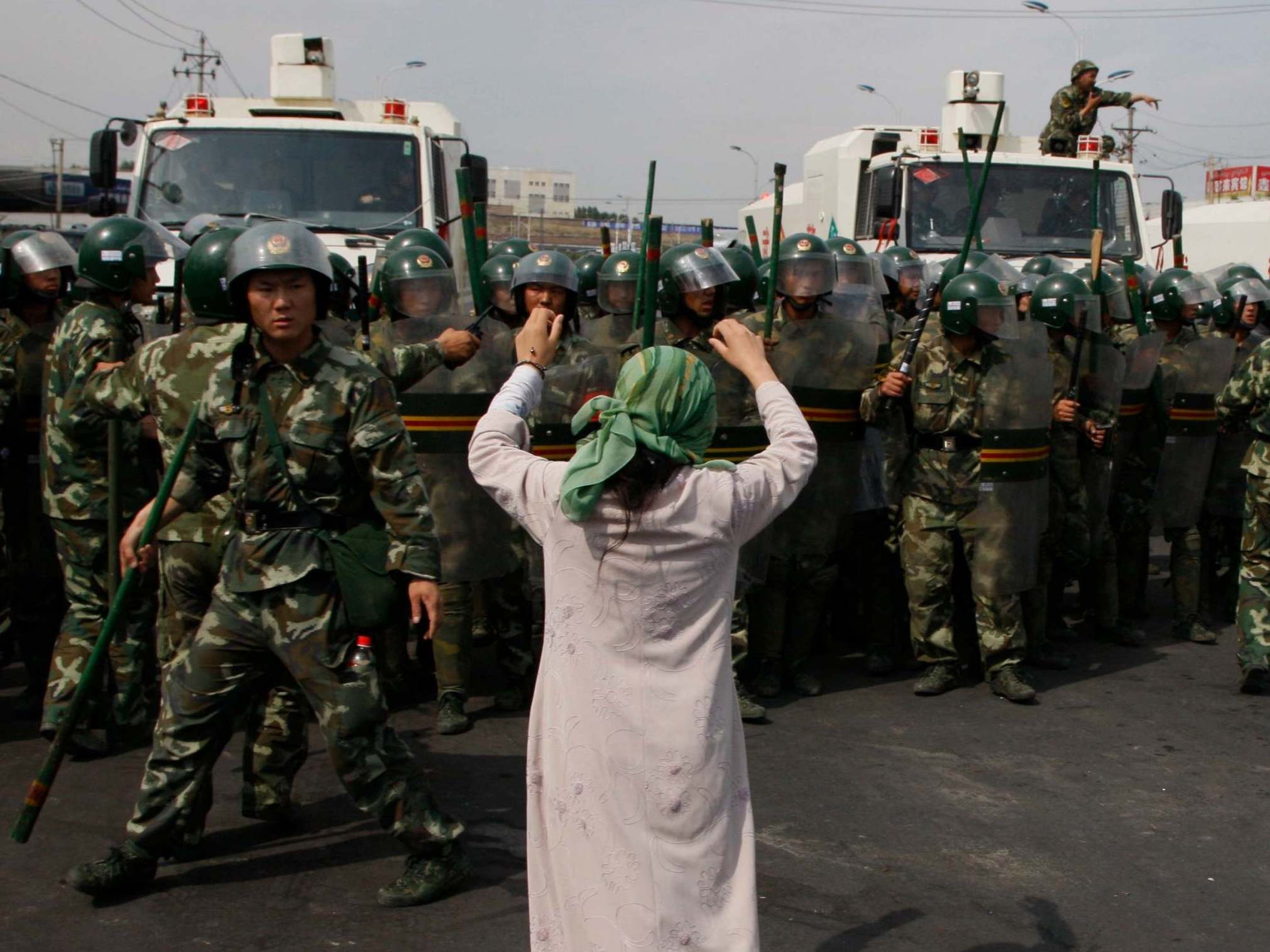Xinjiang: US House votes for targeted sanctions against Chinese officials over Muslim human rights abuse
China calls bill a ‘vicious attack’, coming days after congress passed similar laws over Hong Kong

Your support helps us to tell the story
From reproductive rights to climate change to Big Tech, The Independent is on the ground when the story is developing. Whether it's investigating the financials of Elon Musk's pro-Trump PAC or producing our latest documentary, 'The A Word', which shines a light on the American women fighting for reproductive rights, we know how important it is to parse out the facts from the messaging.
At such a critical moment in US history, we need reporters on the ground. Your donation allows us to keep sending journalists to speak to both sides of the story.
The Independent is trusted by Americans across the entire political spectrum. And unlike many other quality news outlets, we choose not to lock Americans out of our reporting and analysis with paywalls. We believe quality journalism should be available to everyone, paid for by those who can afford it.
Your support makes all the difference.The US House of Representatives has passed a bill calling for “targeted sanctions” against Chinese officials involved in the repression of Uighur Muslims.
The bill, which also calls on Donald Trump to speak out over the detention of more than a million Muslims in China’s northwestern Xinjiang province, was passed on Tuesday by a vote of 407 to 1. It must still go to the Senate and then the president for approval.
It comes just days after Mr Trump signed into law a bill that expressed congress’s support for the pro-democracy protesters in Hong Kong. China responded to that bill by banning US warships from docking in the port city, and by bringing sanctions against American NGOs.
China summoned a representative of the US embassy to make “stern representations” over the new bill, according to a state broadcaster. Vice foreign minister Qin Gang met with William Klein, the US embassy’s minister-counsellor for political affairs, and urged the US to stop interfering in China’s domestic affairs.
The new bill, named the Uighur Human Rights Policy Act, specifically names the Communist Party’s boss in Xinjiang – Chen Quanguo – as a prime target for sanctions. Chen has been dubbed the “architect” of the Uighur camps, which Beijing describes as “vocational training centres”.
Senator Marco Rubio, one of the backers of the legislation, said China was “working to systematically wipe out the ethnic and cultural identities of Uighurs and other Muslim minorities”. “Today, congress took another important step to hold Chinese officials accountable for egregious and ongoing human rights abuses,” he said.
The bill identifies some of the policies used by the Chinese authorities to keep tabs on all the estimated 10 million Uighurs in Xinjiang, not just the hundreds of thousands in detention.
These include facial recognition software, the use of QR codes to track how often people pray and general “pervasive, high-tech surveillance, including the collection of DNA samples from children”.
The White House is set to say whether it will approve the bill, should it pass the Senate. But it includes a revision that would allow Mr Trump to waive any sanctions if he believed it to be in the national interest.
China hit back with a lengthy statement on Wednesday morning, saying the bill “deliberately smears the human rights condition[s] in Xinjiang” and “viciously attacks the Chinese government’s Xinjiang policy”.
Attributed to foreign ministry spokesperson Hua Chunying, it repeated Beijing’s oft-used line that such criticism from Washington “violates international law and basic norms governing international relations, and grossly interferes in China’s internal affairs”.
Ms Hua said the policies in Xinjiang “are not about human rights, ethnicity or religion, but about fighting violence, terrorism and separatism”. China claims that the rising numbers of violent terror attacks up to 2017 necessitated the use of the “training centres” for deradicalisation.
And the statement also touted various international bodies’ comments in support of China’s counterterror policies, including favourable remarks made by the Organisation for Islamic Cooperation in March, as showing Beijing was backed by “the mainstream public opinion of the international community”.
In reality, the situation in Xinjiang has divided the international community. UN human rights bodies have expressed repeated concerns and a group of mostly western nations wrote a letter earlier this year calling for action to support the Uighurs.
But other nations, mostly those with close economic ties to China and involvement in its “Belt and Road” infrastructure initiative, have asserted Beijing’s right to tackle what it calls a national security issue.
Join our commenting forum
Join thought-provoking conversations, follow other Independent readers and see their replies
Comments